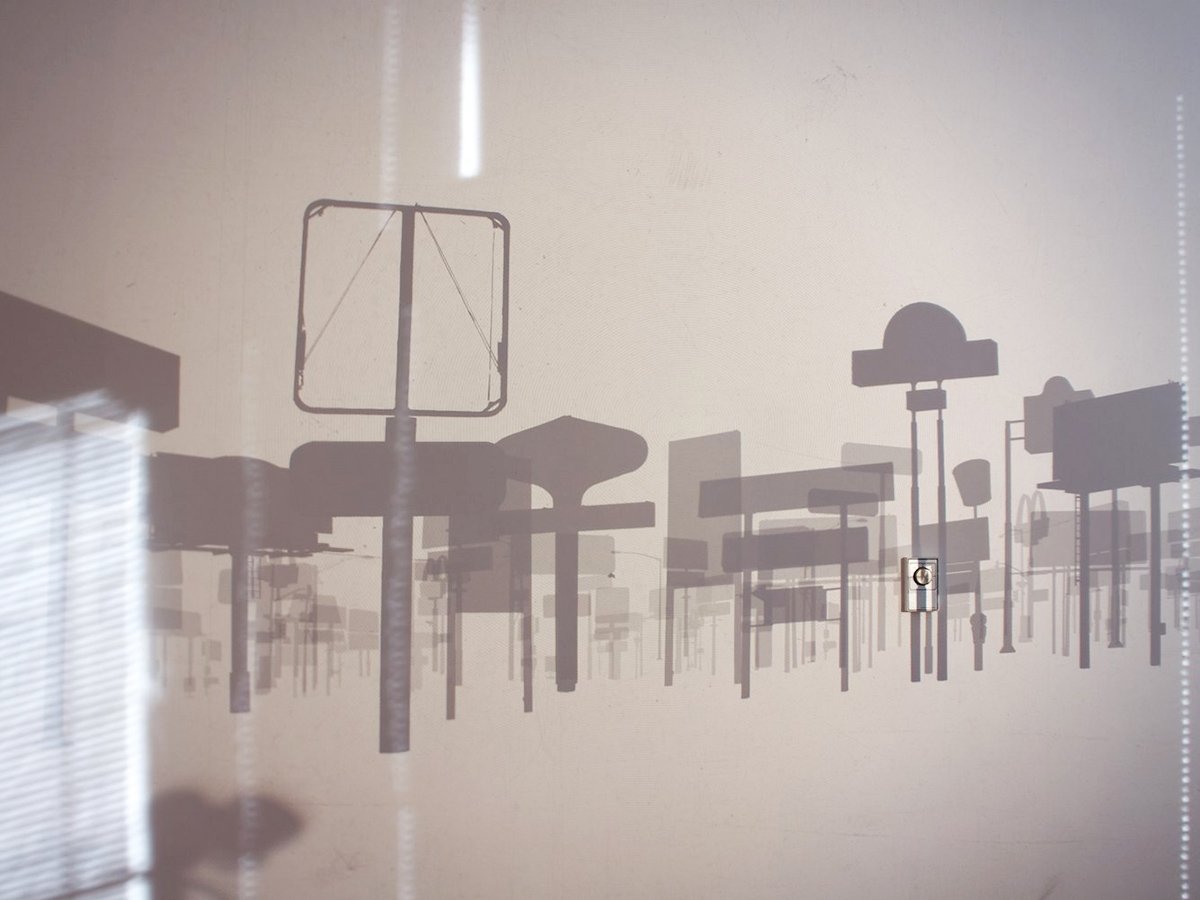
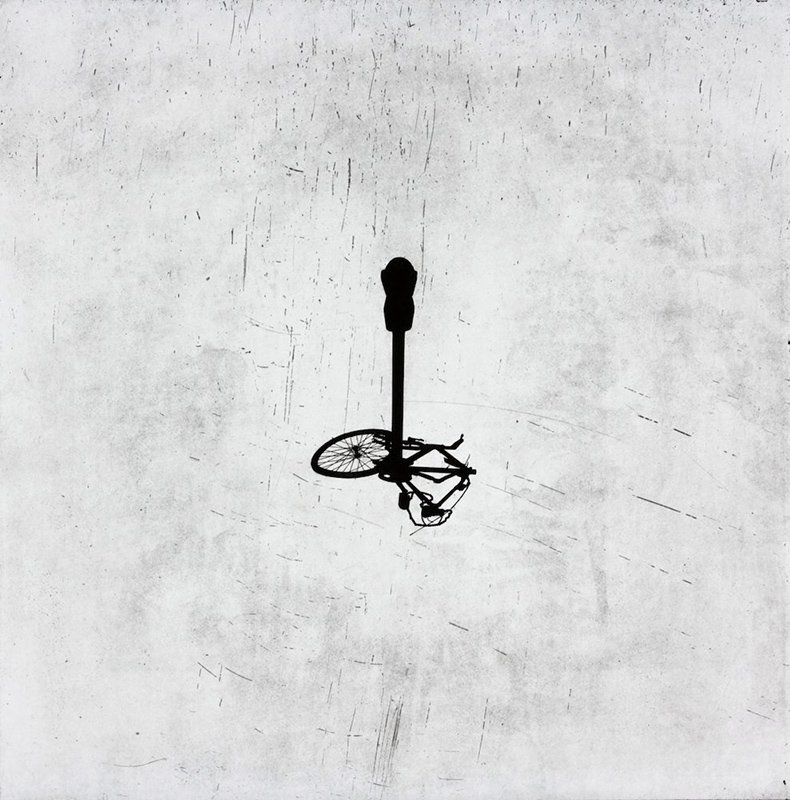
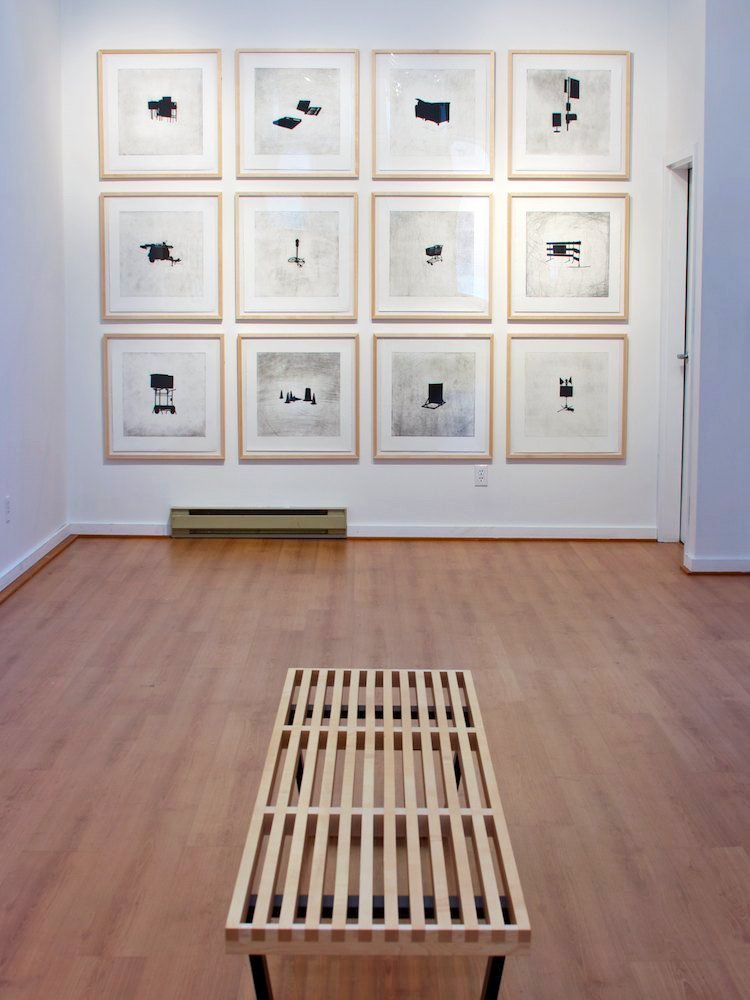
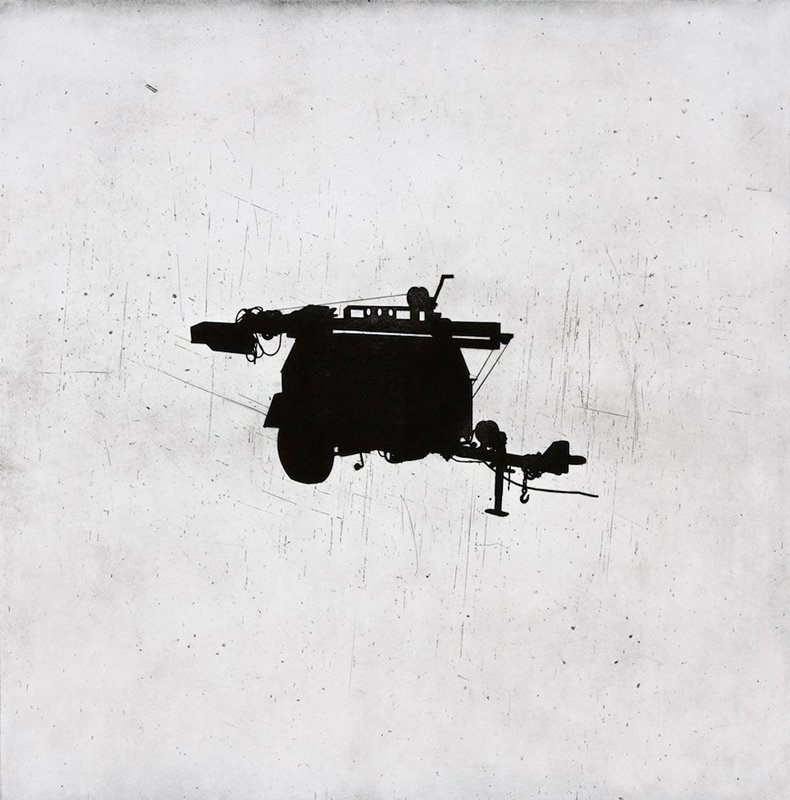
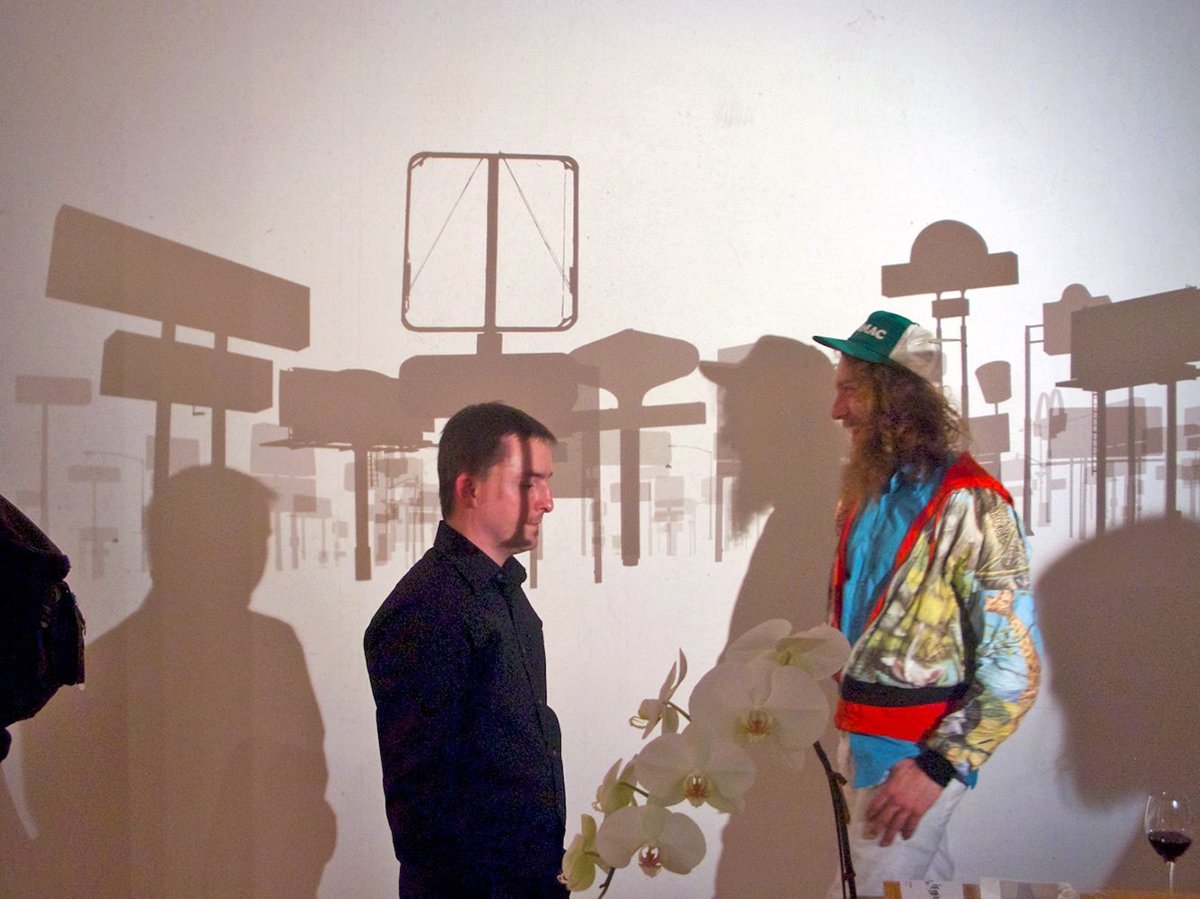
untitled landscape
Kevin Haas
October 29 to November 27, 2010
The work of Kevin Haas depicts commercial landscapes found near the highways and interstates that surround and interconnect our cities. His prints address the ubiquity and displacement of these environments, which fill an increasing part of our everyday landscape but often remain overlooked. Haas is compelled by his own tenuous complicity with these places and their seemingly infinite potential for sprawl. untitled landscape focuses on the multiplicity of things that exist within the built environment, and their seeming foreignness and disconnection from our everyday lives.
Haas primarily works with printmaking which parallels, and conflicts with his subject matter. It allows him to emphasize the role technology plays in our lives, and mimic the production that occurs at many of the places he depict. Just as prints have multiple existences, so do the places and objects he chooses to document, which are typically mass produced and pervasive. The contradiction between the handmade, and the industrialized environment he depicts, is an enduring conundrum for him.
Kevin Haas grew up in the rust belt of the Midwestern United States, and was inspired by the abandoned industrial areas of St Louis, Chicago, Gary and Indianapolis. He earned his BFA from The School of the Art Institute of Chicago and a MFA from Indiana University where he studied printmaking and digital media. Although he now lives in rural Eastern Washington, where he is an Associate Professor at Washington State University and coordinator of the Printmaking Area, he still seeks out places where human activity has transformed the environment around him. Since 1995 his work has been featured in solo and group exhibitions across the US and in Canada. He has been included in exhibits at Critical Line Gallery in Tacoma, the Jundt Museum in Spokane, and Davidson Galleries in Seattle. He is a recipient of both the Artist Trust Fellowship and GAP grants. Most recently he was an artist in residence at the Frans Masereel Center in Belgium, and presented a paper on critical issues in printmaking at the IMPACT conference in the UK.